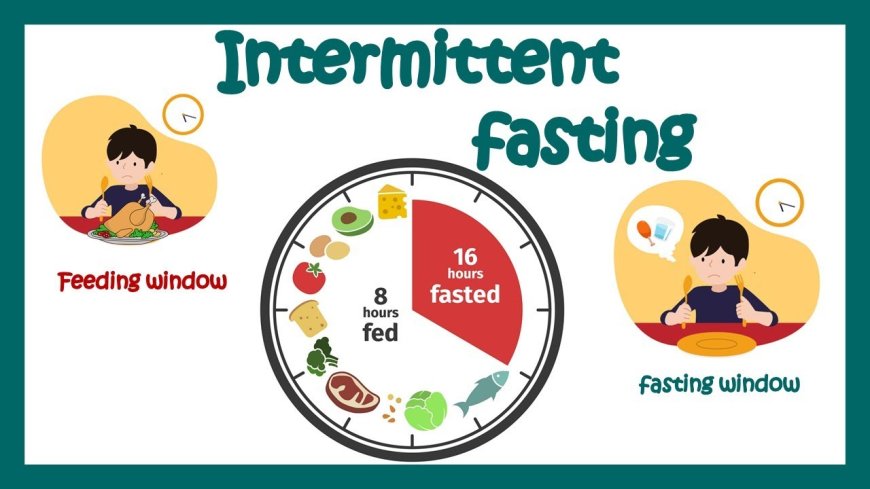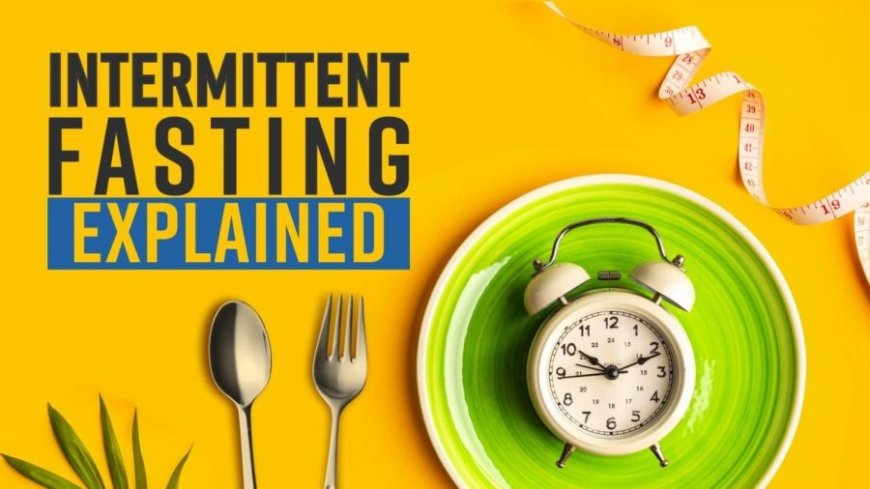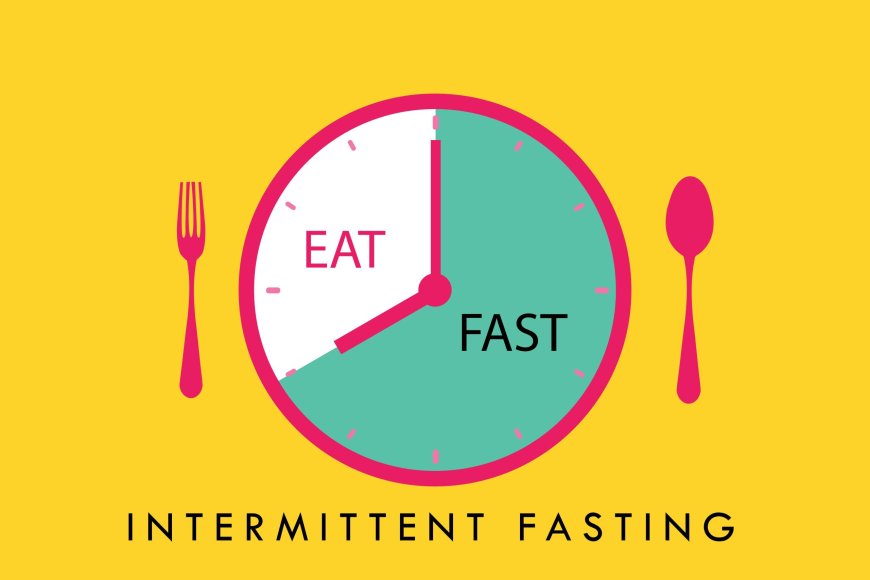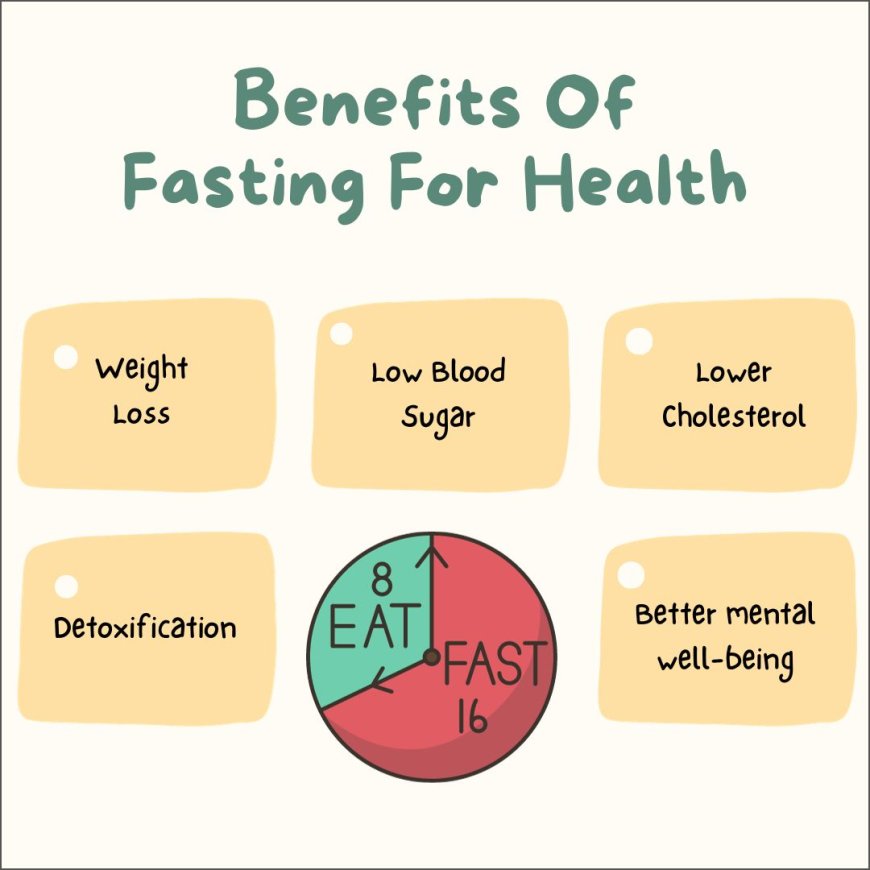How intermediate fasting is recommended by Youth.
Discover how intermittent fasting is embraced by youth for its health benefits. Learn about fasting types, and benefits like weight loss, reduced inflammation, and improved brain function.

An eating pattern known as intermittent fasting may help burn fat, lower inflammation, enhance cell repair, and improve heart health.
You can regularly refrain for shorter periods by engaging in intermittent (short-term) fasting. You already have an eight-hour intermittent fasting period if you obtain eight hours of unbroken sleep every night. The 16:8 fast, a 16-hour daily continuous fast with eight hours during which you can eat everything you want, is when you skip meals for the four hours before bed and the four hours after waking up. Other fasting regimens need a full day of abstinence twice a week or roughly every two weeks.
Intermittent Fasting Types

Among the variations of intermittent fasting are:
-
Prolonged overnight fasting: This practice, which consists of only prolonging the time between supper and breakfast, is most frequently researched concerning cancer. When dining was less convenient than it is now, this was probably the "normal" diet that our ancestors followed. The 16/8 technique is a popular regimen that involves eating between 12 p.m. and 8 p.m. (16 hours of no food and 8 hours of unrestricted eating).
-
Time-restricted feeding: This only specifies the hours during which food can be consumed and the hours during which fasting is permitted. It can be confused with extended overnight fasting.
-
Short-term fasting: Short-term fasting comes in several forms. People who participate in alternate-day fasting, for instance, alternate between days when they are not restricted and days when they consume around 25% of their daily caloric intake. People who observe whole-day fasting typically eat normally (without limitations) five days a week and consume either no calories or 25% of their regular daily consumption two days a week.
Age's Effect on Intermittent Fasting

Our bodies will inevitably alter as we age. We won't react to different lifestyle modifications in the same manner as we did a few years ago. Intermittent fasting is a part of this.
Our metabolism, hormone levels, and general health requirements will change as we progress through the many phases of life. As a result, this will impact our fasting experience and advantages. Before beginning intermittent fasting, it is important to take into account and comprehend these age-related aspects.
Ages between 18 and 30

Choose a period of intermittent fasting that works for your social life.
Food and drink are an essential component of social life for many 18- to 30-year-olds, whether it's playing beer pong with college buddies, debriefing with coworkers over ramen after work, or spending Sunday evenings with friends over wine and cheese to discuss the most recent episode of your favorite program.
Selecting an intermittent fasting plan that you can manually modify might be perfect if you're in the social butterfly stage of life (being sociable doesn't have an age limit, regardless of age). This way, you can fit your fasting around your social time.
For instance, if you typically fast at 18:6 but this weekend you have plans to go out for late-night tacos with your coworkers and then attend a large celebration for your best friend's birthday, don't worry! You can change your fasting window to 14:10 to give yourself a longer window for eating on these days and then return to 18:6 on Monday. You can vary it as much as you need to; it doesn't have to be the same length every day to be effective.
An eating pattern known as intermittent fasting alternates between times when you eat and times when you fast.
-
The 16:8 and 5:2 approaches are just two of the numerous varieties of intermittent fasting.
-
It may provide significant advantages for your body and brain, according to several studies.
Health Benefits for Youth of Intermittent Fasting.

1. Modifications in how genes, cells, and hormones work
Several things occur in your body when you go for extended periods without eating.
For instance, your body initiates crucial cellular repair processes and modifies hormone levels to increase the accessibility of stored body fat.
Some of the changes that intermittent fasting may cause in your body include the following:
-
Insulin level: Insulin levels in your blood fall dramatically, which encourages fat burning.
-
The amount of human growth hormone (HGH) in your blood might rise sharply. In addition to its many other advantages, higher levels of this hormone encourage muscular growth and fat burning.
-
Cellular repair: Your body begins vital cellular repair functions, such as clearing waste from cells.
-
Gene expression: Numerous genes and substances linked to lifespan and illness prevention undergo advantageous alterations.
These alterations in hormones, cellular activity, and gene expression are linked to many of the advantages of intermittent fasting.
2. Can aid in weight loss and visceral fat reduction
Intermittent fasting is a popular weight-loss strategy.
You will often consume fewer meals if you practice intermittent fasting. You will ultimately consume fewer calories unless you make up for it by eating much more at the other meals.
Intermittent fasting also improves hormone function, which aids in weight loss. Your body breaks down more body fat and uses it more easily for energy when your insulin, HGH, and norepinephrine levels are lower, higher, and higher, respectively.
Short-term fasting hence really increases your metabolism. You can burn even more calories with the aid of this reliable source.
Researchers discovered that individuals who engaged in 12 weeks of intermittent fasting lost an average of 9% of their body weight, which was greater than those who used other weight reduction techniques, in a 2022 study by Trusted Source that included 131 obese individuals. However, the 5:2 intermittent fasting regimen was the main focus of this study, meaning that individuals reduced their caloric intake for two days each week and ate normally for the other five days.
3. Can minimize the risk of type 2 diabetes by reducing insulin resistance.
It has been demonstrated that intermittent fasting significantly improves insulin resistance and significantly lowers blood sugar levels. Anything that lowers insulin resistance should help prevent type 2 diabetes and lower blood sugar levels.
The authors of a 2022 evaluation of ten research on intermittent fasting concluded that there was an average 0.15 millimoles per liter drop in fasting blood sugar. Reliable source.
Intermittent fasting also increased survival rates and provided protection against diabetic retinopathy, a diabetes condition that can result in blindness, according to a 2018 study conducted on diabetic mice.
According to these findings, intermittent fasting may offer significant protection for those who are susceptible to type 2 diabetes.
Men and women may experience the effects differently, though. According to a 2017 meta-analysis, a 2015 studyTrusted Source showed that while men's blood sugar management improved following a 3-week intermittent fasting regimen, women's deteriorated.
4. Can lessen inflammation and oxidative stress in your body
One element that can lead to aging and several chronic illnesses is oxidative stress.
Free radicals are unstable chemicals that destroy other vital molecules like DNA and proteins when they interact with them.
Intermittent fasting may improve your body's ability to withstand oxidative stress, per a 2018 review.
Furthermore, in a 2019 study according to a reliable source, intermittent fasting may aid in the battle against inflammation, which is a major cause of many common illnesses.
5. Offers advantages for your brain
Your brain will frequently benefit from the same things that are excellent for your body.
Numerous metabolic characteristics that are known to be critical for brain function are improved by intermittent fasting.
Fasting intermittently can help lower:
-
Irritation caused by oxidative stress
-
levels of blood sugar
-
Resistance to insulin
Research on animals Intermittent fasting may promote the development of new nerve cells, which may improve brain function, according to research from Trusted Source.
Additionally, a brain hormone known as brain-derived neurotrophic factor (BDNF) is elevated during fasting. Depression and other brain disorders may be related to a BDNF shortage.
Intermittent fasting may also help prevent stroke-related brain damage, according to studies (Trusted Source).
Conclusion:
Intermittent fasting is an eating pattern that can help burn fat, lower inflammation, enhance cell repair, and improve heart health. It can be adapted to different age groups and can lead to changes in genes, cells, and hormones, resulting in weight loss and visceral fat reduction. It can reduce the risk of type 2 diabetes by reducing insulin resistance, reducing inflammation and oxidative stress, and improving metabolic features. It may also promote nerve cell development and brain function improvement and may elevate the brain hormone BDNF, which may be related to depression and other brain disorders.
FAQ’s:
Q: Why is 16 hours the ideal length of time to fast?
Losing weight can be achieved by fasting for 16 hours every day. However, a 2022 study (Trusted Source) suggests that switching up your fasting days may be more beneficial than time-restricted eating plans like the 16:8 diet or the 5:2 diet.
Q: What advantages does 16:8 intermittent fasting offer?
Eating eight hours a day and fasting for sixteen hours may help you reduce blood sugar, decrease weight, and have other health benefits that may contribute to a longer lifespan. To determine whether this is the case, additional investigation is necessary.
Q: What would happen if I fasted intermittently every day?
In general, your weight and general health may improve if you follow an intermittent fasting diet daily. However, you may have some adverse side effects, including headaches, constipation, and tiredness. Additionally, you must exercise caution to avoid overindulging within the time for eating.
What's Your Reaction?



































































































